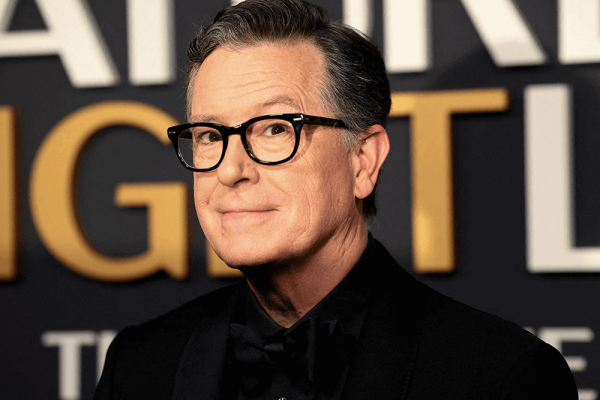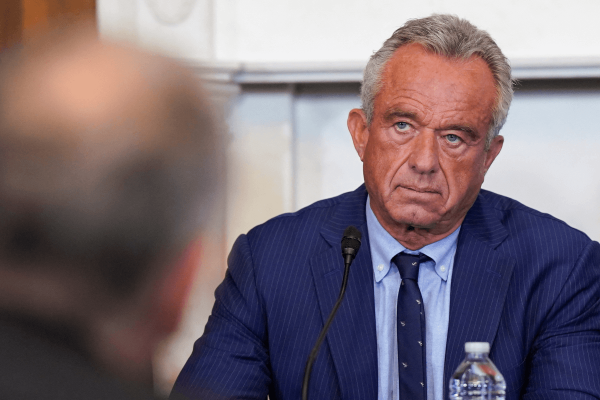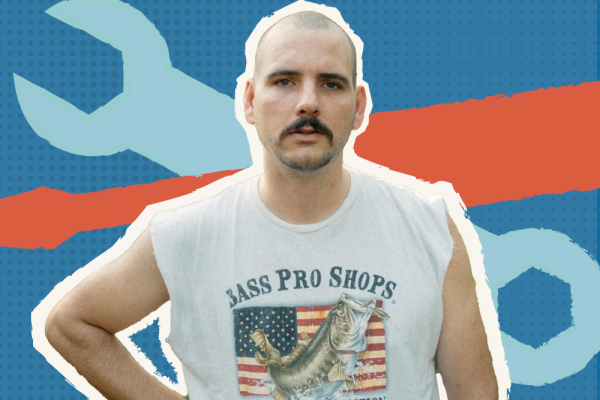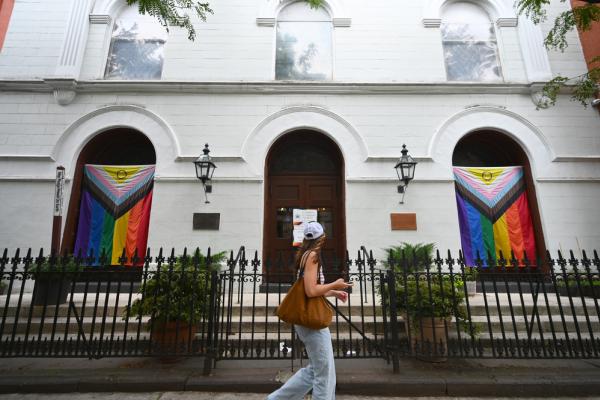The Fantastic Four: First Steps starts out with a trade proposal of the highest stakes. Galactus, the world-eating villain of Marvel’s latest reboot, will spare the Earth from his insatiable hunger in exchange for one child.
The child on the cosmic bargaining table is Franklin, son of Reed Richards, aka “Mister Fantastic” (a subdued Pedro Pascal) and Sue Storm, aka “The Invisible Woman” (Vanessa Kirby, who really gets to shine as the Fantastic Four’s leader).
I was researching an article I was writing for Sojourners recently when I noticed something odd: The AI Overview answer that was being generated kept shifting, even though my search query did not.
For those not familiar with Google’s relatively new AI Overview technology, AI Overviews are AI-generated summaries that appear at the top of Google search results pages for certain queries. According to Google, AI Overviews use generative AI to provide quick, easy-to-read answers to Google searches by compiling information from multiple sources, including web pages, news articles, and Google’s Knowledge Graph.
Brad Onishi is the co-host of a podcast titled Straight White American Jesus. With co-host Daniel Miller, Onishi examines and deconstructs evangelical politics, theology, and culture. Onishi, who has a doctorate in religious studies, told me that when they began the podcast in 2018, he wasn’t sure if anyone would listen. But now, almost 900 episodes later, they’ve “commented on every angle and every aspect of Christian nationalism, the Trump presidencies, the Biden presidency, and everything in between: from gender to race, sexuality, church politics, and so on.”
The verse that radicalized me will be a familiar one to Sojourners readers. It can be found in Matthew 25: “The King will reply, ‘Truly I tell you, whatever you did for one of the least of these brothers and sisters of mine, you did for me.’”
“Radicalization” is a popular topic. When I say I have been radicalized, I don’t mean that I’ve been shaped by a rigid set of beliefs that draws hard lines between who’s in and who’s out. I mean that I’ve been transformed by the teachings of Jesus, which challenge me to practice a radical form of love for others.
In 2022, Dua Lipa appeared as a guest on The Late Show with Stephen Colbert, and asked him about the role his faith plays in his work.
“Does your faith and your comedy ever overlap?” she asked. “And does one ever win out?”
Colbert first offers a little quip (“I think, ultimately, us all being mortal, the faith will win out in the end”) and then launches into a lengthy and eloquent treatise on how Catholic teaching has trained him to wield humor as a defense against despair.
I don’t believe that government regulation and intervention is the answer to every problem.
I also have no problem acknowledging — and condemning — instances where our government has created policies that prioritize corporate profits over the health of the American people. For example, thanks to the efforts of agricultural lobbyists, the government continues to subsidize corn and wheat, thereby incentivizing their use in cheap, ultra-processed foods that are linked to worse health outcomes. The opioid crisis is another complex and particularly tragic example of government prioritizing powerful corporate interests over Americans’ health.
Some of these same themes recently appeared in “Make America Healthy Again,” a new report led by Robert F. Kennedy Jr., President Donald Trump’s secretary of Health and Human Services. But while I share a healthy skepticism about corporate influence on federal health care policy, I am alarmed to see vaccine skepticism and outright anti-vaccine attitudes enshrined at the highest levels of government, especially within entities responsible for overseeing public health. And I’m especially grieved to see how bad Christian theology and warped notions of religious freedom are used to fuel that skepticism and its deadly consequences.
You can add Nathan Evans Fox to the list of artists who are in the country music scene without entirely being of it. Or maybe it’s better to say Fox is operating in a purer, livelier stratosphere of country music that neither needs nor wants the approval of the Nashville ruling class. So far, he’s doing just fine. His “Hillbilly Hymn (Okra and Cigarettes)” made a viral splash; a rich tune in the tradition of old Appalachian spirituals that envisions a cop-free Heaven where “the rich get scared” and “the guns are all for shootin’ clays.”
On July 7, the IRS made waves when it reversed its longstanding guidance that churches must avoid partisan speech under the Johnson Amendment of the U.S. tax code.
What does this new IRS guidance mean for political engagement among progressive churches?
The Bible has a lot to say about gender.
Of course, there are innumerable instances when the Bible has historically been used to enforce the idea that gender is a divinely ordained binary, with male and female genders that are distinct, complementary, and assigned at birth.
But by going back to the original languages of the Bible and examining modern translations more closely a much more complex spectrum of biblical gender is revealed. At some rabbinical colleges, scholars have identified as many as eight genders represented in the original Hebrew.
When Democratic Socialist Zohran Mamdani defeated Andrew Cuomo in New York City’s mayoral primary, the political establishment didn’t quite know what to do.
Headlines described Mamdani’s win as “stunning,” “electrifying,” an “upset,” and even a “miracle.” Right-wing critics responded with predictable vitriol, labeling Mamdani a “communist,” “terrorist,” and a “little Muhammad.” These attacks were aimed both at his politics and his identity as an Indian American, a Muslim, and a socialist.
But what was most remarkable about Mamdani’s successful campaign wasn’t necessarily Mamdani himself. Rather, it was the working-class support behind his campaign that captured people’s attention.





